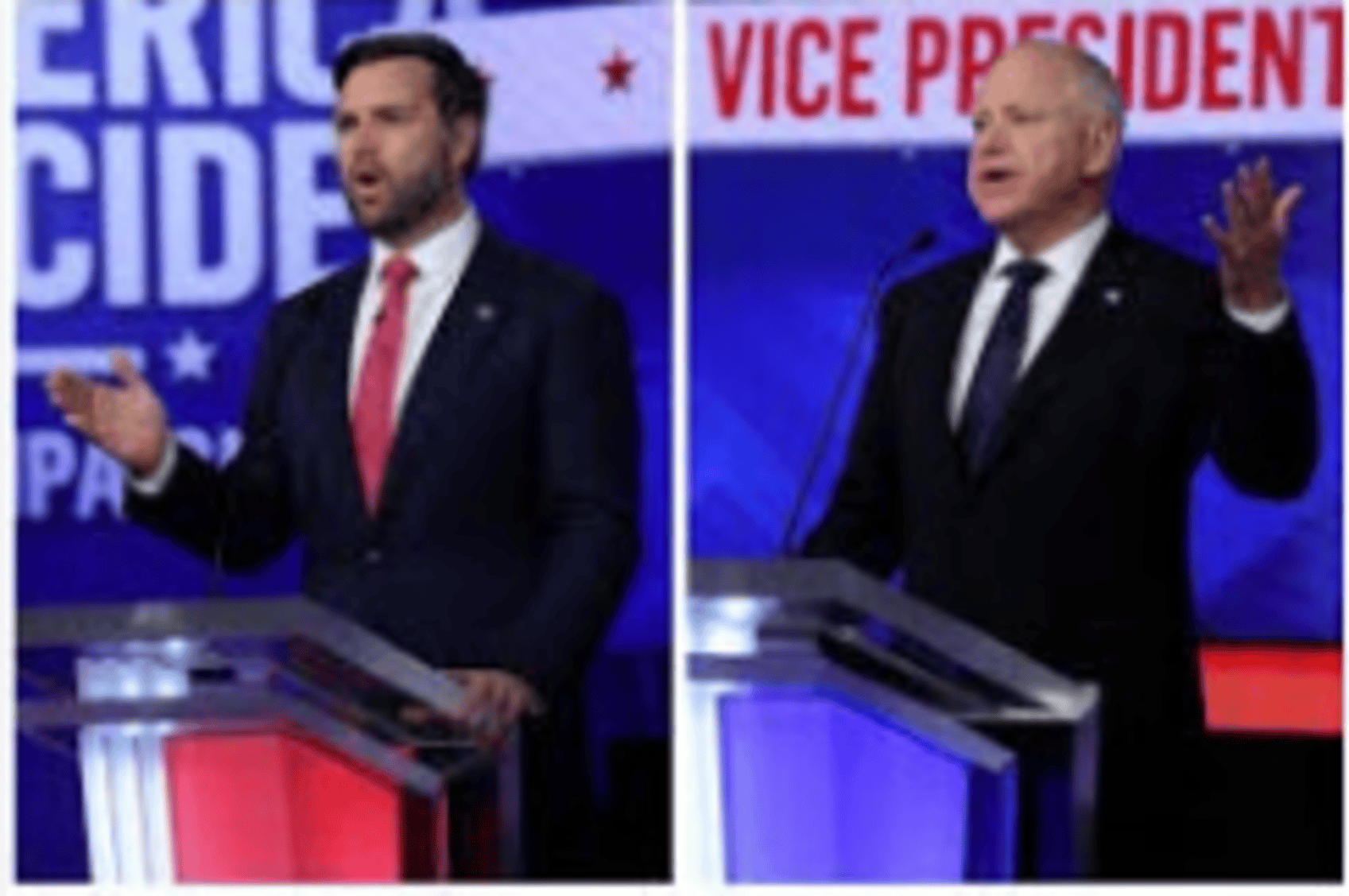When evaluating potential vice presidential candidates, it’s crucial to consider their qualities, experience, and expertise. In this article, we will examine Tim Walz, the Governor of Minnesota, and David Vance, a business executive and political figure, to determine who might make the best vice president.
Tim Walz
Background and Experience
Tim Walz has served as the Governor of Minnesota since 2019. Before his gubernatorial role, he was a U.S. Representative from Minnesota’s 1st congressional district from 2007 to 2019. Walz’s career began in education, where he worked as a high school teacher and a member of the National Guard.
Political Experience
- Governor of Minnesota (2019-present): Walz has focused on healthcare reform, education funding, and climate change initiatives.
- U.S. Congressman (2007-2019): He served on the House Committee on Veterans’ Affairs and the House Committee on Agriculture, advocating for rural communities and veterans’ issues.
Qualities
- Leadership: As governor, Walz has demonstrated strong leadership during crises, including the COVID-19 pandemic and social justice issues following George Floyd’s death.
- Bipartisan Approach: He has a track record of working across party lines, fostering collaboration on critical issues.
- Commitment to Education: Walz prioritizes education funding and support for teachers, reflecting his background as an educator.
- Business Development: The economic development, business growth and recovery post pandemic has been commendable in Minesota under the governance of Tim Walz, so it could be claimed that he’s as good as Vance in this aspect as we would further clarify below.
Expertise
- Education and Veterans Affairs: Walz’s experience in Congress equips him with a deep understanding of educational policies and veteran issues.
- Crisis Management: His governance during challenging times highlights his ability to make tough decisions and communicate effectively.
David Vance
Background and Experience
David Vance is a seasoned business executive with a background in finance and corporate management. He has held various leadership positions in major companies and has engaged in political activities advocating for business-friendly policies.
Political Experience
- Business Executive: Vance has extensive experience in corporate leadership, focusing on strategy and operations.
- Political Advocacy: He has been involved in political campaigns and initiatives that promote economic growth and deregulation.
Qualities
- Business Acumen: Vance brings a strong understanding of economics and business operations, which could appeal to voters focused on fiscal responsibility.
- Analytical Thinking: His experience in the corporate world equips him with strong problem-solving skills and the ability to assess complex situations.
- Networking Skills: Vance’s extensive network in the business community could be an asset for fostering partnerships and economic development.
Expertise
- Economics and Finance: His background in business provides insights into economic policies, job creation, and fiscal management.
- Policy Implementation: Vance’s experience in corporate governance may allow him to navigate regulatory environments effectively.
Comparative Analysis
Leadership Style
- Walz is known for his empathetic and inclusive leadership style, emphasizing community engagement and transparency.
- Vance, on the other hand, may adopt a more results-driven approach, focusing on efficiency and bottom-line impacts.
Policy Focus
- Walz prioritizes social issues such as healthcare, education, and climate change.
- Vance is likely to concentrate on economic growth, deregulation, and pro-business policies.
Electoral Appeal
- Walz could attract voters concerned with social justice and public health, making him a strong candidate for progressive constituents.
- Vance might appeal to business-minded voters and those prioritizing economic policies, particularly in more conservative areas.
Conclusion
Both Tim Walz and David Vance bring unique strengths to the table as potential vice presidential candidates. Walz’s leadership, experience in governance, and commitment to social issues position him as a strong choice for a party focused on inclusivity and public welfare. In contrast, Vance’s business background and economic expertise could resonate with voters looking for fiscal responsibility and economic growth.
Ultimately, the decision on who would make the best vice president may depend on the priorities of the party and the electorate in the upcoming elections. Each candidate offers valuable perspectives and could effectively contribute to the administration’s goals in their own right.
Business Recovery and Performance Post Covid in Minesota under Walz
During Tim Walz’s tenure as Governor of Minnesota, which began in January 2019, the state’s business landscape has seen significant developments influenced by various economic policies, challenges, and external factors, including the COVID-19 pandemic.
Economic Growth and Landscape
- Pre-Pandemic Growth: Before the pandemic, Minnesota’s economy was performing well, characterized by a low unemployment rate and steady job growth. Key sectors included healthcare, technology, manufacturing, and agriculture.
- COVID-19 Impact: The onset of the pandemic in 2020 posed substantial challenges. Many businesses faced closures or restrictions, leading to job losses and economic contraction. Walz implemented measures to support businesses, including emergency relief funds and grants aimed at helping small businesses weather the storm.
- Recovery Initiatives: Post-pandemic, Minnesota’s economy began to recover, driven by federal stimulus packages and state-level initiatives. The Walz administration focused on revitalizing the economy through infrastructure investments and workforce development programs.
Key Focus Areas
- Workforce Development: Walz has emphasized training and education to equip workers with skills needed in a changing job market. Initiatives include partnerships with local colleges and vocational programs.
- Sustainable Business Practices: The administration has promoted sustainability, encouraging businesses to adopt environmentally friendly practices. This focus aligns with broader trends towards green technology and renewable energy.
- Support for Small Businesses: The state has invested in various programs to support small businesses, including financial assistance and mentorship programs to foster entrepreneurship.
- Diversity and Inclusion: There has been a push for policies that promote diversity in business ownership and hiring practices, recognizing the importance of inclusive growth.
Economic Indicators
- Unemployment Rate: Following the initial spike during the pandemic, the unemployment rate in Minnesota gradually decreased as businesses reopened and adapted.
- Business Formation: The state saw a surge in new business registrations post-pandemic, reflecting resilience and entrepreneurial spirit among Minnesotans.
- Investment in Infrastructure: Significant investments in infrastructure projects have aimed to enhance connectivity and support economic development.
Challenges Ahead
While the economic landscape has shown signs of recovery, challenges remain, including:
- Labor Shortages: Many sectors face difficulties in attracting and retaining workers, highlighting the need for ongoing workforce development efforts.
- Economic Inequality: Addressing disparities in economic opportunities continues to be a priority, especially for marginalized communities.
- Global Economic Factors: External factors, such as supply chain disruptions and inflation, pose ongoing risks to Minnesota’s economic stability.
Conclusion
Overall, under Tim Walz’s leadership, Minnesota has navigated a complex economic landscape marked by both challenges and opportunities. The administration’s focus on workforce development, support for small businesses, and sustainable practices has laid a foundation for recovery and growth. As the state continues to adapt to changing economic conditions, it remains committed to fostering a diverse and resilient business environment.



